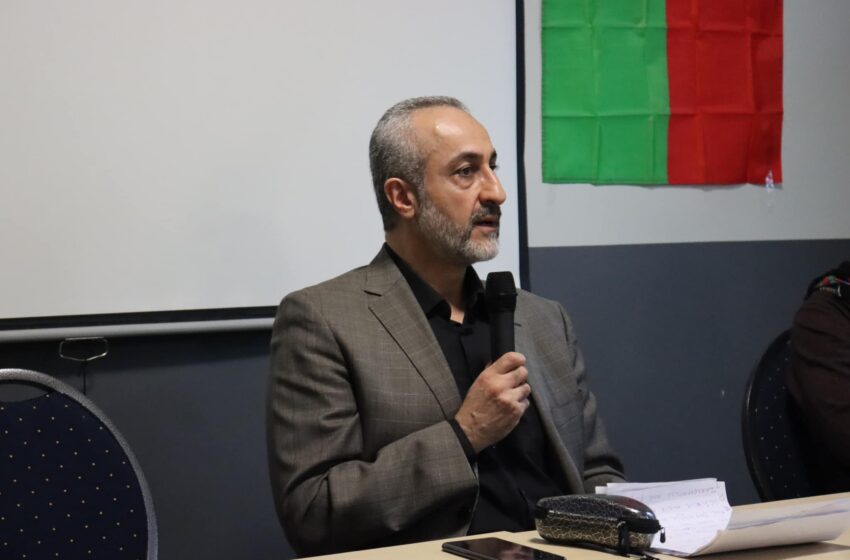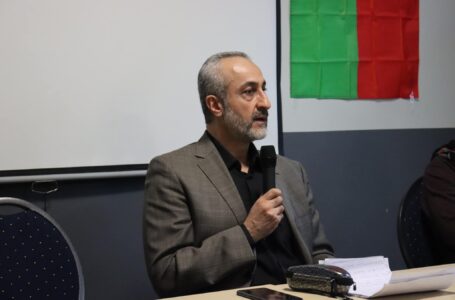Indian State Should Focus on Unconventional Methods: Jamal Nasir Baloch
Pakistan continues its expansionist ambitions in Afghanistan: Hyrbyair Marri

LONDON: Hyrbyair Marri, the pro-freedom Baloch leader and head of the Free Balochistan Movement, has expressed concerns over recent Pakistani airstrikes on Afghan territory.
Marri stated that these actions by the Pakistani state are aimed at exacerbating economic difficulties and pressure on Afghanistan by closing passages for trade and movement between Afghans on both sides of the Durand Line.
Marri emphasized that while such airstrikes may be new to Afghanistan, they are not unfamiliar to the Baloch people. He recalled past instances where the Pakistani military conducted airstrikes, resulting in the deaths of thousands of Baloch individuals in Chamalang and its surrounding areas in the 1970s, and hundreds more during the Musharraf era.
Recent aerial bombardments by Iran and Pakistan in occupied Balochistan have further escalated tensions, resulting in the loss of innocent Baloch lives, including women and children.
Marri asserted that these actions are reflective of Pakistan’s expansionist ambitions.
In his statement, Marri added that the construction of a 1600-mile illegal fence along the Durand Line by Pakistan has separated Afghan families and now with the closure of passageways, it aims to restrict their movement, exacerbating existing economic hardships and political blackmail.
The FBM leader said that in the future independent Balochistan, no such anti-human blackmailing strategy will be adopted in the state foreign policy.
Marri stressed that such tactics are not new, as Pakistan has a history of exploiting its relationship with Afghanistan and the international community for its own interests. He highlighted Pakistan’s duplicitous behaviour, citing instances where it received billions of dollars in aid while simultaneously working against the interests of its allies.
The leader of the Free Balochistan Movement criticized Pakistan’s discriminatory policies towards Pashtuns, suspecting those across the Durand Line of Afghan identity. He noted the dismissal of individuals suspicious of Afghan identity from key civil and military positions, indicative of Pakistan’s fear of Pashtun’s association with Afghanistan.
Marri highlighted Pakistan’s systematic suppression of the Baloch people since the occupation of Balochistan, citing the denial of educational and professional opportunities to prevent Baloch advancement. He emphasised Pakistan’s aim to keep the Baloch nation enslaved and hinder their progress towards independence.
Highlighting Pakistan’s history of exploiting neighbouring nations, Marri warned of continued efforts to weaken Afghan and Baloch national strength through political and military influence. He urged Baloch political activists to remain vigilant and distinguish between supportive and complacent neighbours in the struggle for independence.
In conclusion, Marri acknowledged Afghanistan’s historical support for the Baloch people in times of need, contrasting it with Iran’s complicity in the Baloch genocide and Pakistan’s exploitation of the situation. He emphasized the importance of solidarity among oppressed nations in the pursuit of freedom and independence.











